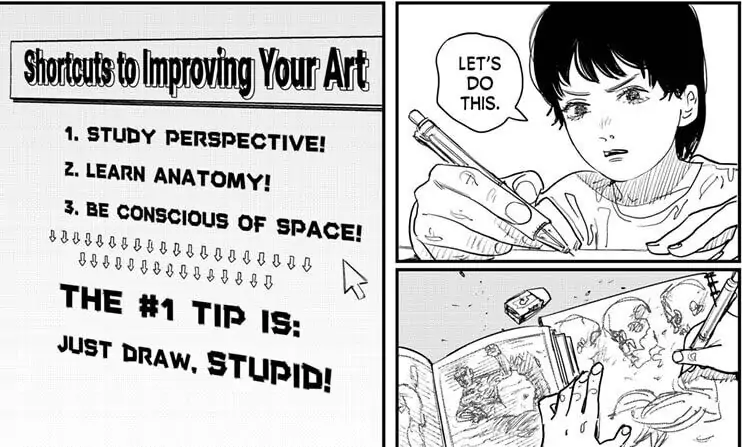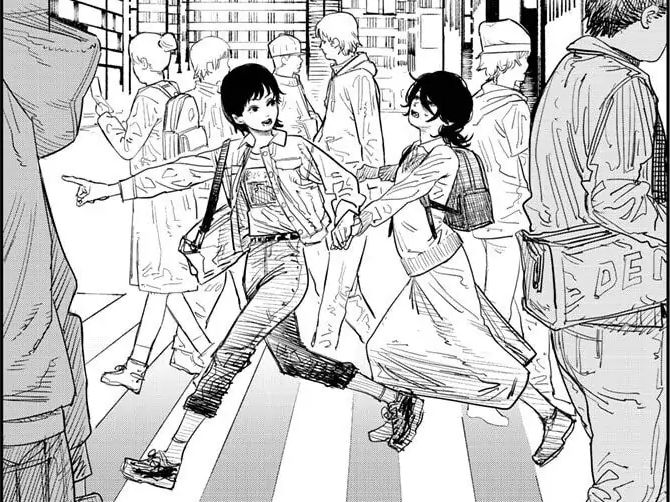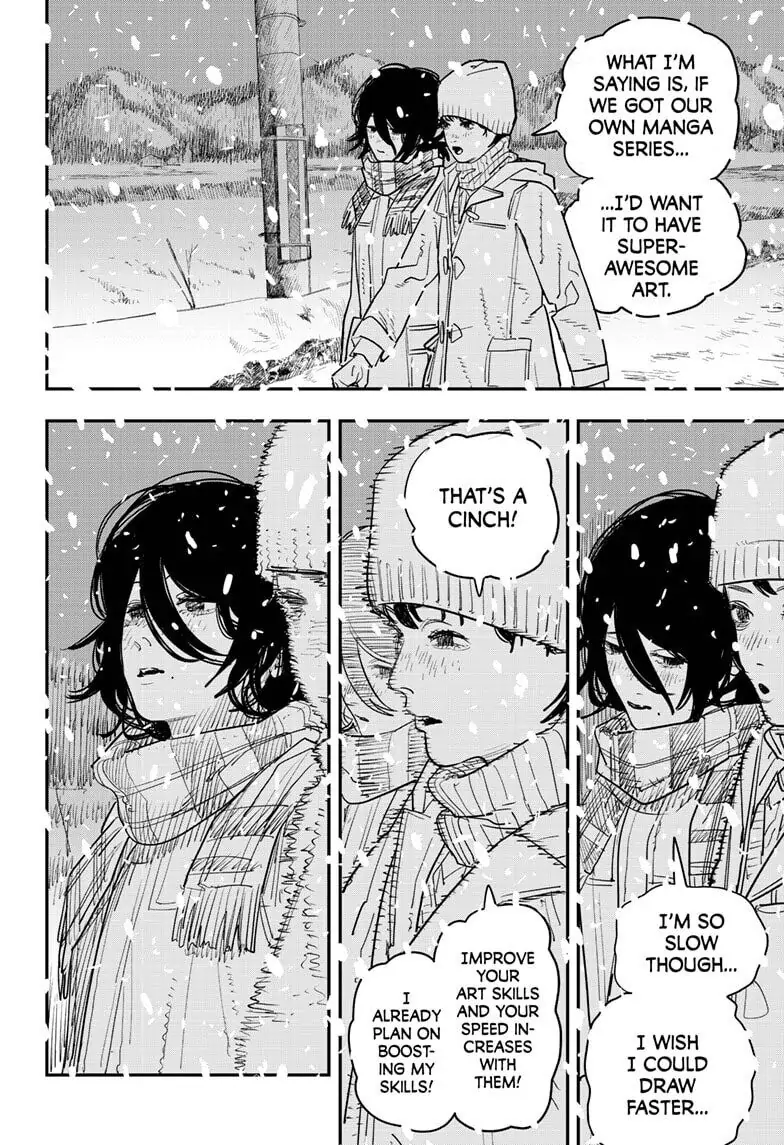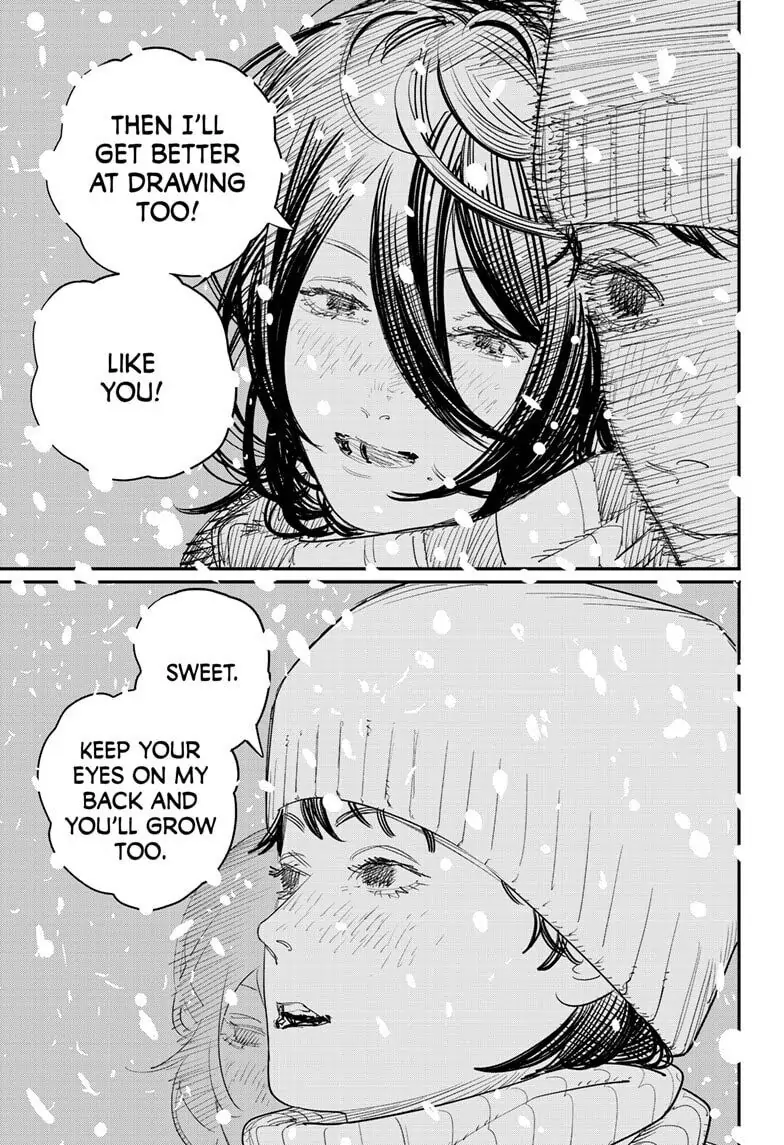didn't really proofread, orz

Saw Look Back in theatres recently with some friends. A labor of love film for everyone involved, it seems. It was really good, and I highly recommend watching it regardless if you've read the one shot or not. I do think that going in knowing the source material will give you a better viewing experience and will make you appreciate both the film and one-shot more. There's an argument to be made about going in blind, however.
I really enjoyed my first read of Look Back a while ago, but I don't think I would've made this post if it didn't get an adaptation. The work that went into it being animated is important to its appeal and message, I believe.
I won't get too into the contents of the film itself (or even how gorgeous it is), rather the impact it had on individuals involved, and how that ties directly back into the message of Look Back. That being said, everyone has their own valid interpretations.
Look Back is about the creative process, being imprinted on by one another through friendship, and how those two concepts are connected. Its reception alone, especially by people involved with the work, showed how well that message reflected onto aspiring and current creatives and hobbyists.
It's an inspirational ouroboros... if that makes sense.

Many people, including people involved in the film, were creatively and/or emotionally touched by it.
Anecdotally, on the car ride home, a good friend of mine lamented optimistically on his lack of drive lately, how Look Back made him want to get back into his hobbies with newfound fervor, and how he related to Fujino's beginnings as an artist. I, myself, had a very similar line of thought, perhaps made obvious through the existence of this blog post.
It got people thinking, "I should really get around to finishing that... one... thing..." or, "I should start that hobby I've always wanted to do. Why haven't I?" I think this often happens when you find yourself in an inspiring situation, no matter how seemingly insignificant. It could be a relatively still and peaceful moment of fleeting silence in your life, or that one part of a song that hits you harder than the rest. It could be anything, really.
The difference between passing inspiration and Look Back is the fact that it's centered around portraying a creative process, and how it both comes to a sort of fruition and even a stopping point. It's relatable for anyone that's had a hobby of a sort, not even just a creative hobby. It's inspiring to see the "hard" parts of being creative.
Putting yourself into those shoes of the successful protagonist, you ask yourself, "why isn't that me?" Or rather, a better and more forgiving question to ask yourself, "why couldn't that be me?"
As far as possible mental limitations go, the answer to that is nothing, really.
There's no reason as to why it couldn't be you, so that's why you need to make the first step, or continue to steadily walk to your own tune.

Clearly, there's no real connection in the context of a literal friendship between a film and the viewer. Metaphorically, of course, it exists if you want it to. It was a momentary friend you met while traveling, and maybe you'll see them again. However, that shows no relevance here besides showing off my penchant for being overbearingly sentimental.
In Look Back's case, the feeling of being inspired by a friend, rather than merely a piece of inspiring work, is carried on through the characters involved, Look Back's team members, and the audience themselves.
An unlikely partnership that was born out of mutual inspiration and a wish to create—and to be good at it, at that, is shown. With this alone, you can understand Look Back's worldwide impact.
Kiyotaka Oshiyama, the director himself, clearly holds so much sentiment and passion towards Look Back's story and the development of the film itself in a way that I cannot justifiably rephrase. It is better heard through his own words. It was a very personal work to him, and I think watching the after-credits interview should be a damn near requirement, especially if you didn't read the source material.
Haruka Nakamura, the composer of the score, notably mentions how the story resonated with him through the memory of his late benefactor, mentor, and friend Nujabes in this interview.


On a more personal note, Look Back's representation of a close friendship between two young girls, one more timid and closed off than the other, reminds me a lot of me and my best friend when we were kids. She's mutually my rock, and I feel similarly to Fujino's protective attitude towards Kyomoto, though I've grown out of some of my more... controlling sentiments.
Anyhow, Look Back didn't shake me to my core the same way it did for many other viewers out there. It didn't really give me an epiphany on what I want to "truly want do", or give me that final push I needed to finally get back on track with one out of the boundless unfinished creative projects I have. Though, the response to it definitely gave me a spark of sorts. It's real cool to see.
I'm slowly coming to a personal understanding with myself and trust that I will eventually get to everything I want to achieve, create, or learn.
Until then, I will continue to be inspired by others and take note of my affections. And in turn, I'd like to create something that makes at least one person want to follow suit, much like Look Back did. Perhaps on not such a grand scale yet.


|
|
|